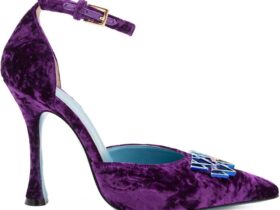No products in the cart.
How To Find The Right Equipment For Your Business

Finding the right equipment for your business is essential to achieving success. Whether you’re a small start-up or an established company, having the right tools and machines to do the job can make all the difference. But how do you determine what kind of equipment is best suited for your needs? It’s important to take the time to evaluate which products and features best suit your business’s needs. Here are some tips to help you make the right choice.
1. Identify Your Needs
The first step in finding the right equipment is determining your exact needs. Are you looking for something to help automate a certain process? Do you need a tool that will make it easier to produce high-quality products? Knowing what specific purpose the equipment should serve will make it much easier to narrow down your choices. According to the team behind Niagara Machine, the best way to determine which machine is right for your business is to take the time to develop a list of required features and look for machines that meet these criteria. It’s also a good idea to consider the size of the equipment and make sure it won’t be too big or too small for your space.
2. Research Your Options
Before you start shopping, it’s important to do your research. Make sure to read reviews and talk to trusted sources in order to get a better idea of the equipment that is available on the market. Consider what features are most important for you and your business before making any decisions. This can help you narrow down your search and find the best equipment for your needs. While it can be tempting to just buy the first product you come across, taking your time to research and make an informed decision will ensure that you get the best value for your money.
3. Consider Your Budget
When you’re searching for the right equipment for your business, it’s important to consider what you can afford. Make sure that you are aware of all the associated costs and budget appropriately. Be sure to factor in additional expenses such as installation fees, maintenance costs, and insurance. You may also want to look into financing options or leasing agreements that can help spread out the cost over time. Additionally, don’t forget about any potential tax breaks or incentives that could help reduce overall costs. Knowing your budget ahead of time will help ensure that you make a smart purchase decision rather than one based on impulse alone.
4. Longevity
When selecting the right equipment for your business, it is important to consider how long the item will last. Investing in durable, quality equipment can save you money and time by reducing maintenance costs and downtime. Look for equipment that has a proven track record of reliability and durability. Ask about warranty coverage and support options prior to purchasing any equipment. Don’t shy away from investing a little more upfront if it means getting higher quality items – this can lead to a better return on investment over time.
5. Stay Up-to-Date With Technology
Staying up-to-date with the latest technology is essential for any business. Keeping track of new equipment and technologies can help you stay competitive and find better solutions to save time and money. Be sure to keep an eye on industry trends, attend conferences, read trade publications, join forums, or talk to experts in order to find out what’s available and how it can benefit your business. This way, you’ll know exactly what kind of equipment would best suit your needs. If you keep up with the latest technology, you’ll have an easier time finding the right equipment for your business.
6. Know Your Suppliers
Before you make a purchasing decision, it’s wise to research and vet your supplier. Make sure they have a good reputation for quality and customer service. Request samples of their products if possible, so that you can inspect them closely. Ask questions about warranties, maintenance support, and after-sale services before making a purchase. Additionally, check out online reviews from other customers to get an unbiased opinion of the supplier’s quality and service. Knowing your suppliers can help ensure that you buy reliable equipment that will last for years to come.
Finding the right equipment for your business can be a daunting task. It’s important to take your time and do your research before making any decisions. Consider all of the factors mentioned above, such as features, budget, longevity, technology trends, and suppliers in order to make an informed purchase decision. By following this advice, you can ensure that you get the best equipment for your business, at the best price.















Leave a Reply